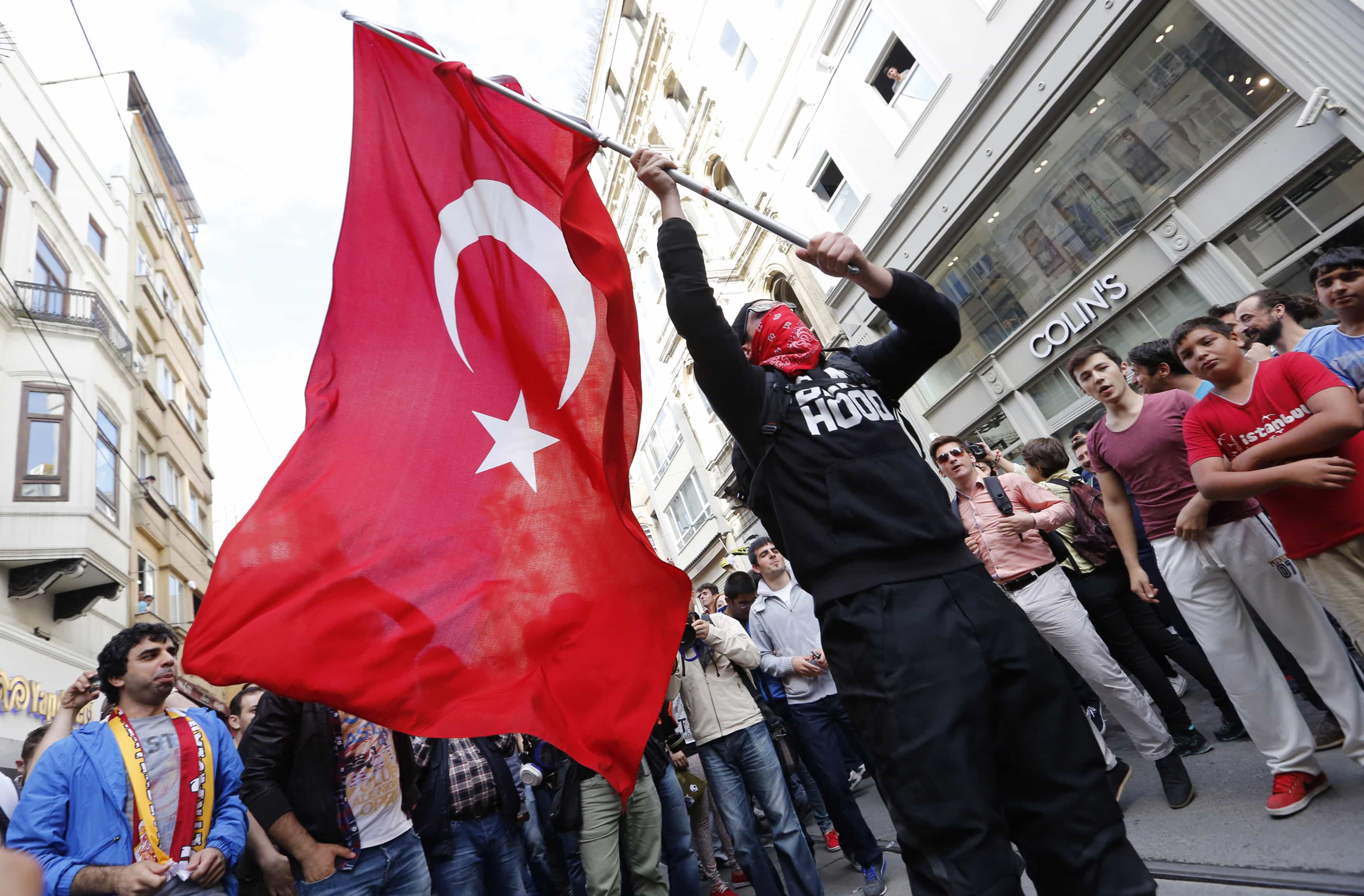Violence at Gezi Park anniversary protests in Turkey points to the fact that freedom of expression is still under threat one year after anti-government protest swept through the country.
Turkish police have detained more than 100 activists, journalists and lawyers taking part in Gezi Park anniversary protests in May and June. It’s just one sign that freedom of expression is still under threat in Turkey, say IFEX members.
Last year, the violent suppression of protests against a development plan in Istanbul’s Gezi Park in Taksim Square set off a wave of anti-government demonstrations across Turkey that expanded to include the rights to freedom of assembly and expression.
Anniversary protests this year have sparked a new wave of violence. At least 126 activists were detained on 31 May in Istanbul, reports local IFEX member Bianet.
The Progressive Lawyers Association (CHD) in Turkey reported on 2 June that seven of their lawyers had been detained in Ankara, Izmir, Adana and Istanbul. Bianet cameras also recorded lawyers being assaulted in the streets of Istanbul.
Even prominent figures such as journalist Ahmet Sik, the recipient of UNESCO’s 2014 World Press Freedom Prize, was beaten by police while covering protests in Istanbul on 1 June, reports the International Federation of Journalists (IFJ).
Impunity reigns
Reporters Without Borders (RSF) attributes this year’s crackdown to many of the original Gezi Park crimes going unpunished. Johann Bihr, head of RSF’s Eastern Europe and Central Asia desk, says, “The impunity enjoyed by those responsible for last year’s abuses just encourages the police to continue.”
Online repression
The crackdown goes beyond the streets. In February 2014 the government passed a new internet law that severely limits online activity and allows the government to block content that “violates privacy” or is “discriminatory or insulting” – without having to seek a court order. “The timing of the new law raises concerns that a defensive government is seeking to increase its power to silence critics and to limit arbitrarily any politically damaging material,” Human Rights Watch said in February.
Social media, which played a key part in the protests, is not in the clear. On 20 March, Twitter was blocked throughout Turkey (although courts overturned the decision five days later). In the same month, YouTube was blocked, after conversations between government officials were leaked online. The ban was only lifted on 3 June.
The message from the top
Prime Minister Recep Tayyip Erdogan has personally been trying to silence his critics. He recently brought defamation complaints against high-profile writers Can Dundar, Ahmet Altan and Ihsan Eliacik, reports PEN International. Defamation cases in Turkey invoke both criminal and civil law. Altan was forced to pay €6000 in compensation to Erdogan when he lost his criminal trial. As Bianet noted in August 2013, the prime minister has “built a reputation for himself as a prodigious litigator”.
Erdogan has even urged Turkish citizens to use defamation laws against journalists, most recently calling on family members of victims of the Soma mining disaster to sue journalists for their reporting and comments on the Turkish government’s safety record and its response to the tragedy.
The prime minister also called for journalists to be fired and accused BBC Turkey of hiring actors to play the parts of victims’ relatives in their news reports, according to press releases from the International Press Institute (IPI).
Business as usual
The one positive note is that eight journalists were released in May, after a Turkish legal reform reduced maximum detention times for suspects on trial.
“Turkey is taking the right steps toward bringing its press freedom record in line with democratic standards, but more needs to be done,” said Committee to Protect Journalists Deputy Director Robert Mahoney.
Still, as this week’s protests show, it will take more than this token gesture to raise the level of respect for human rights in Turkey.
Said the European Federation of Journalists, “The government should have learned that… banning the means of communication [and] intimidating and threatening human rights defenders will never make the country a better place to live.”
The following timeline of events from August 2013 and on is shared courtesy of IFEX member Bianet. See their site for timelines covering the earlier protests.
They say: “Bianet compiled all its news, photo and video content from May 27, 2013 regarding the Gezi Resistance around a timeline. Even though the chronology ends in March 2014, we know that this is just the beginning…”
If you are having trouble viewing this timeline, click here for the http version.



